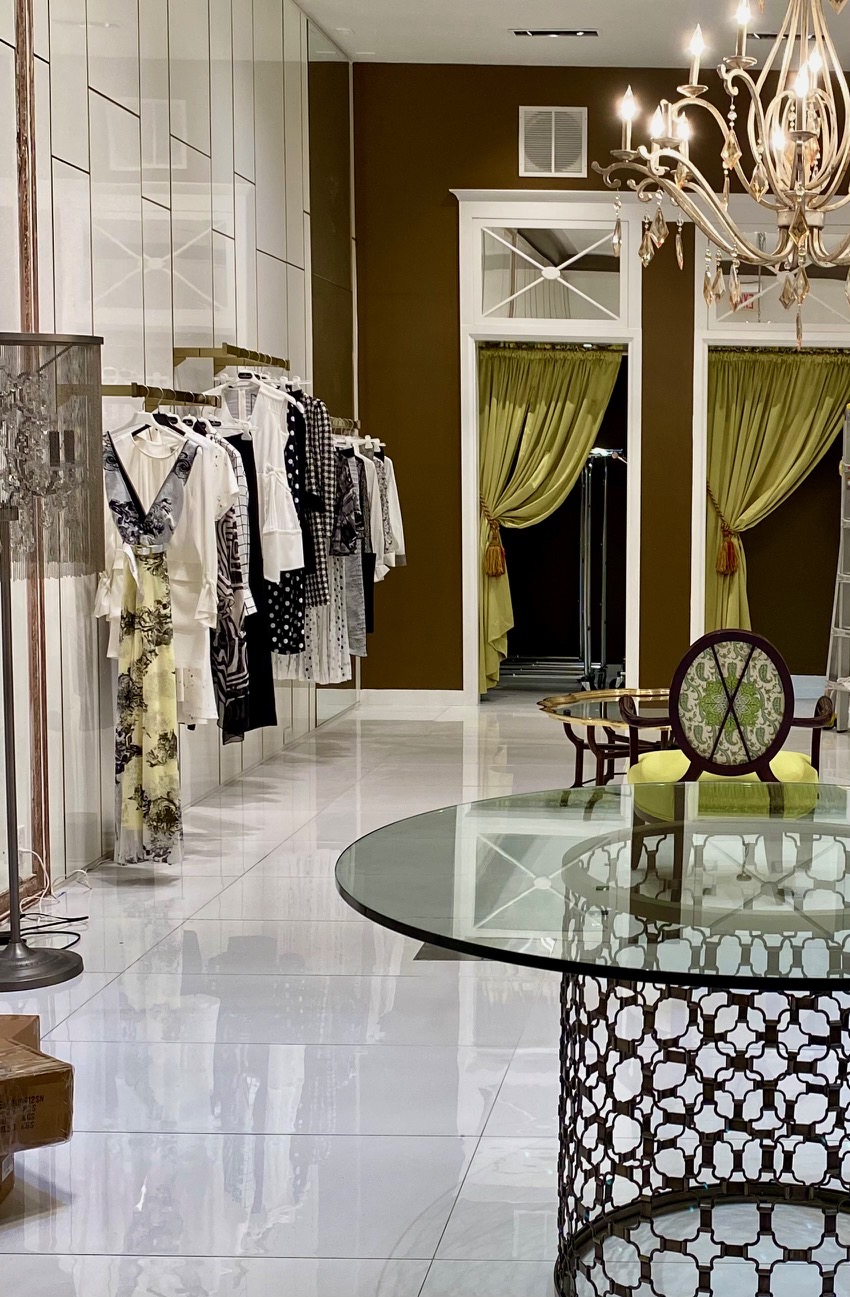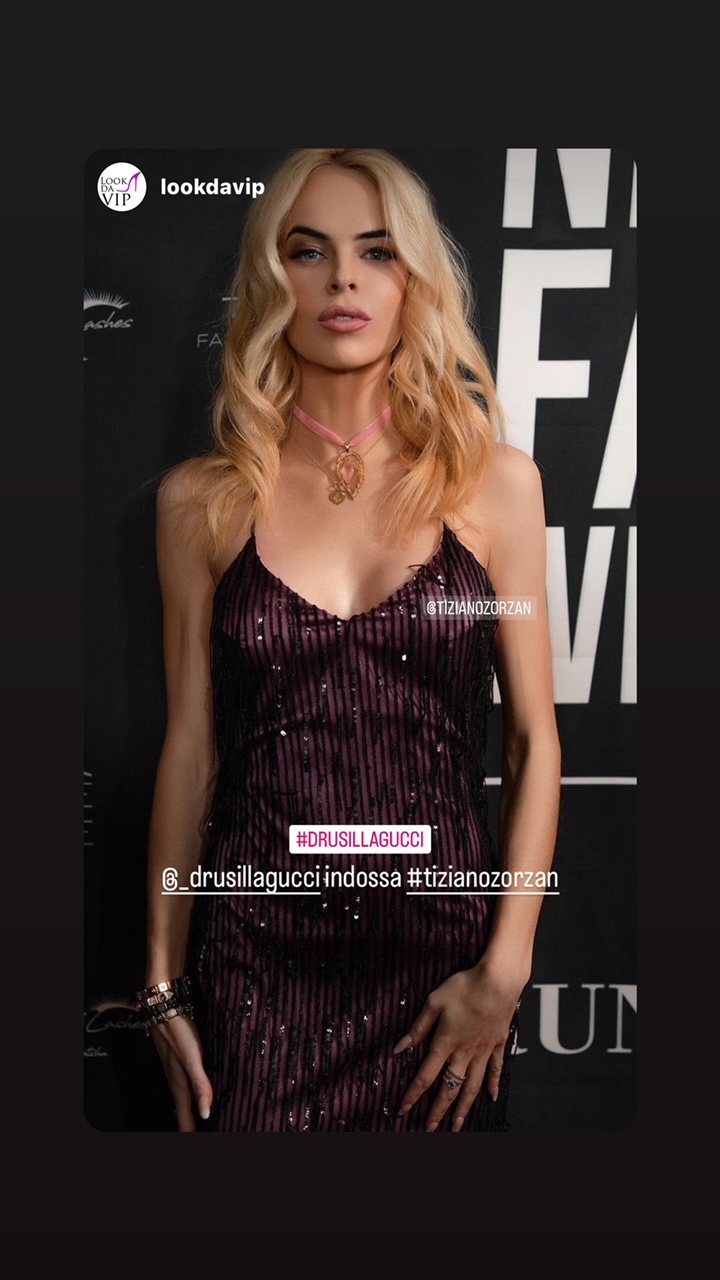The textile collector dwells in a creative soul. He has no predefined color, he darts away from preconceptions, he stands with one foot in a future all to be designed, and with the other in the artisanal past — the one that comes from a quality that, with its scent, does not compromise the principle of good rules.
Tiziano Zorzan has an indefinite age, because that is how an artist feels, in whatever field he finds himself, expressing himself. His works wear you, they choose you, because if somehow, they cannot be interpreted, they leave you, and he, an uncompromising stylist, wants that. Recently, after six years, he closed his flagship boutique on Bleecker Street, on the corner of Perry, in New York. After Covid, it had remained one of the last survivors of luxury in that area.
“I needed larger spaces; I make niche products that need to breathe.” So now you’ll find him on Washington Street in the Meatpacking district, with a view of the High Line.
Here, and in Palm Beach, he proposes his idea of Italy, the one he cultivates in a small Italian workshop where ten women work, from North to South, the most experienced one 84 years old, who “still goes around to see what’s going on.”
Where does Tiziano come from, and where is he going? His background is in show business; his family were in charge of the costumes used in RAI, in Milan. He worked in TV for years, was a consultant for Cartier, Rolex, Four Seasons, Tom Ford, Baldinini, Louis Vuitton and Piaget. He has worked with Sharon Stone, Whoopi Goldberg and Elizabeth Taylor. “Liz taught me that you have to notice a woman even before she arrives. What she wears is a triggering part.”
Italy yes, but New York is the city that “gets in your blood. There’s a saying that I believe in very much, and I’ve experienced it personally. New York is sort of an old lady — she decides how and when to accept you; you don’t decide that. Either you are able to gallop in that context or you leave, because it drains you.”

Tiziano Zorzan’s present is steeped in empathy, but also in other mixed feelings. “My direction has always been exclusivity, but not in the sense of accessibility: in a trivial way, I don’t like mass production, I am very jealous of my creations, possessive of my products, which I treat with excellent care, as do the staff who work for me.”
And there is an origin, involving not only touch, but all five senses: “I collect textiles, I have a sentimental approach to them, if I see one that I like, I want to own it. Only later, with time, do I think about how to reinterpret it, and this is a reverse process from the canonical practice. There is an underlying assumption: a woman must be a woman, she has her own codes, as does a man. Within those codes I must paint anything. It is important for a woman to highlight femininity, regardless of her form.”
There must be empathy for that: “Yes, that is the prerequisite of my work. From a certain point in my life onward it was no longer about money, but passion. It happened that I no longer ran after success, but towards putting what I do as my only priority.”
Well, but New York is a very expensive city, money is necessary… “Yes, but when you get what you want everything becomes relative, although directly proportional. It depends on who you deal with. In fact, I don’t make a mass-produced product; it’s not cheap, far from it.”
And in the meantime, there was the pandemic… “Yeah… After Covid I decided to raise the bar even higher. My workshop produces pieces that take time to create, but I am proud of that. Mass manufacturing does not bring wealth to my country; it is a waste. What I make, for better or worse, brings food to my people, who live in Italy, pay taxes in Italy. The small artisan works with dedication and passion, it is part of our DNA, which in some ways has been sold off. It’s a hard choice, which touches the economic side, but the satisfaction comes when you see the fruit of the labor of my collaborators’ golden little hands, who treat with white gloves — in the true sense of the word — delicate silks.”
And now where does Tiziano want to go? “I think one knows the moment they feel they have somehow arrived. I will go where the people who are rewarding me will take me. It’s the people who take you elsewhere; it’s an effect-cause relationship. In any case, I want to keep doing things that enrapture me.”

Meaning? “The most beautiful thing is when you tell a customer about a dress, the sacrifice, the respect, the education. When you see the client get excited and thank you. That’s it — this is the space in which I would like to remain.”
It’s been over for quite a while now, but how does Zorzan experience New York Fashion Week? “I don’t care about anything. My product is not online, and that’s a strong problem I have, because I invested a lot for an online store, but I haven’t been able to digest it yet. I don’t like that a product of mine has to leave my house and go on a journey into the unknown. I make something very personal; I have nothing to do with big distribution, I have not embraced that kind of discourse that changes production and leads to different dynamics. I make 15-20 pieces for each item, which will remain unique in the world.”
Hence his great personal satisfaction: “Of course. When my customers tell me that it doesn’t matter when they bought a dress, but that every time they wear it, they get a lot of compliments, this is the result of a fundamental belief. I don’t like trends, I don’t follow trends, I am totally apathetic when someone decides what color should be in fashion. For me, the synonym for freedom is wearing something that makes you feel good.”
Not just with clothing, Tiziano Zorzan is an all-around creative person, even in interior design: “A very unique thing happened to me: I began to understand my gifts when I was looking at an object and thought I would be able to transform it in a better way. I feel like a bit of a visionary, a creative, and today somehow like an Italian flag in the luxury sector.”
But it’s in the United States… “Yes, because in New York I have everything that Italy does not allow me to do. I have taken the best of my roots and tried to give to others what they cannot afford. We are geniuses all over the world — Italian minds are found in the best strategic places.”

And are the fabrics he uses only from Italy? “No, the fabrics come from all over the world, as long as they don’t reek of irregularity. To be in a society, you have to observe the rules — I don’t like those who don’t. Fabrics have a soul in direct proportion to their value. They stand the test of time; they do not die. There are fabrics or garments that even before washing them once are dead, that after a few hours in contact with the skin, leave nothing behind. Mine continue to live, to foster emotions.”
A kind of intimate relationship. “A madness that I can afford, because I do what I want: I don’t have stereotypes, I don’t have budgets that impose conditions on me, for example; 5 thousand pieces of one color. I go with my soul.”
In what sense? “The best example I can give is that of an artist who instinctively throws color onto a blank canvas. That’s the way I am. My work has neither rules nor impositions; I follow my gut and instinct.”
In any case, even if indirectly, Tiziano left his mark at New York Fashion Week: “Yes, Drusilla Gucci was there, she was wearing one of my dresses. I’m very close to the Gucci family. Just as I often dress Jeanine Pirro, from Fox News.”
Something of a preview as we finish this talk? “Um, yes, actually I have one. I’m designing a new capsule of sports bags that are very popular in New York, but for now, I have nothing more to say.”












